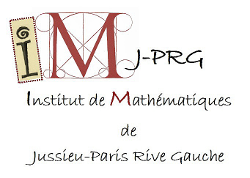| Résume | The Langlands Program draws heavily from many parts of
mathematics, and is often quite inaccessible. In this general-audience
and historically-oriented talk, I hope to showcase some simple ideas and
beautiful results close to its heart. I will first introduce the Selberg
trace formula in its natural harmonic setting. This result provides a
simple framework which unifies results from the number theory of modular
forms, Fourier analysis, the representation theory of finite groups or
Lie groups, and more. I will then introduce the number theoretic
framework which motivated Arthur's more powerful (and infinitely more
technical) trace formula. Finally, I will introduce the fundamental
lemmas. These auxiliary combinatorial results are now understood to
contain deep geometric content, and their proofs, which I will describe
in only the broadest strokes, require a litany of sophisticated tools in
positive-characteristic algebraic geometry (amongst them perverse
sheaves, Artin stacks, motivic integration, the structure theory of
reductive groups over curves).
Despite that scary list, the talk will have minimal prerequisites, and
should have something for any graduate student who knows something about
any of (but certainly not all of) the following: Fourier or harmonic
analysis, differential geometry, algebraic geometry, basic
representation theory or number theory.
|

